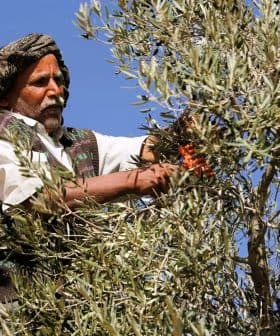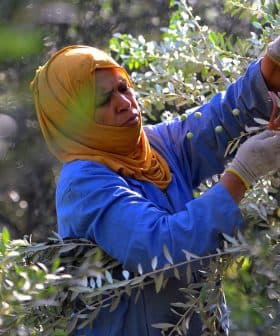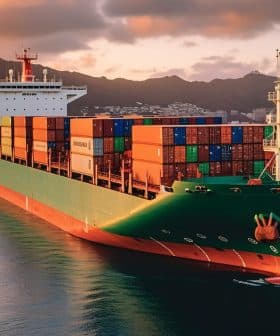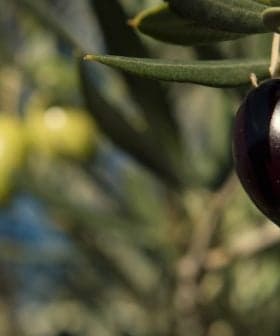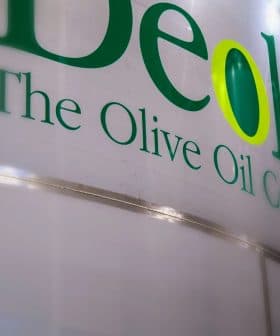Peru Must Lift Anti-Subsidy Duties on Italian and Spanish Olive Oil
A Peruvian tribunal has overturned anti-subsidy duties on Italian and Spanish olive oil imports, citing lack of proof that they harmed Peru’s olive oil industry, leading to the revocation of the €0.95 and €1.05 per kilogram duties. The European Union supported Spain and Italy in the appeal process, hoping to set a precedent against anti-subsidy duties on E.U. olive oil imports, emphasizing that the E.U. subsidy scheme did not constitute an “actionable” subsidy under World Trade Organization rules.

Lima, Peru
A Peruvian tribunal has quashed anti-subsidy duties the country had been imposing on imports of Italian and Spanish olive oil.
The Defense of Competition Chamber of Indecopi, the Peruvian authority on anti-dumping measures and countervailing duties, found that when the duties were approved in late 2010 there had not been the necessary proof that the imports risked harming Peru’s olive oil industry.
Upholding an appeal by Spain and Italy, it revoked authority for the respective duties of €0.95 and €1.05 applied to each kilogram of their olive oil imported into Peru.
Spain hopes other countries take heed
Though their trade with Peru is relatively small — it imports just 300 tons of European olive oil a year (1) — the two countries, with European Union (E.U.) support, saw the issue as significant enough to pursue over what was a complicated and no doubt costly, two-year appeal process.
Rafael Picó, director of Asoliva, the Spanish Olive Oil Exporters Association, told Olimerca magazine the case set an important precedent that would serve as a reference for other countries.
Australia, Mexico and Argentina had already tried applying anti-subsidy (countervailing) duties on E.U. olive oil and a worrying specter was that of a similar attempt by the United States.
E.U. scheme did provide a subsidy
According to the 72-page public version of the Lima-based tribunal’s decision, the E.U. had submitted that its Single Payment Scheme — under which farmers can seek income support — did not constitute an “actionable” subsidy.
Put briefly, World Trade Organization (W.T.O.) members can apply anti-subsidy measures only to subsidies deemed actionable. These must be specific in nature and shown to cause injury to the country’s domestic industry.
The tribunal found that the E.U. scheme was indeed specific, and distorted trade. In its discussion of this it mentioned that even Spanish olive oil giant Deoleo had recognized the scheme’s specific nature in its calculations that the payments, although made on a per hectare basis, averaged out to about 0.5€/kg a year for olive oil from small plantations (though in some cases reaching 0.8€/kg), and about 0.15€/kg for big, high production farms.
Effect of swings in yields not fully factored in
But the tribunal found there had not been proof of injury to the olive oil sector in Peru. In fact, in 2010, the most recent indicators had shown acceptable profitability levels, it said.
Also, in the original ruling allowing the anti-subsidy duties, the assessment of economic indicators had not given due weight to the effect of an unrelated phenomenon — the alternation between high and low yield harvests known in Spanish as vecería. This occurred in Peru in 2008, when 114,360 tons of olives were harvested, more than double that of 2007, and then crashed to just 7,176 tons in 2009.
“It has not been possible to demonstrate the existence of threat of injury or causal link, therefore the decision of the first instance must be overturned, with the result that the countervailing duties cease to apply,” the tribunal said.
E.U. says scheme okay under W.T.O. rules
European Commissioner for Agriculture Dacian Cioloş welcomed the outcome, saying he hoped Peru would act quickly to abolish the duties, and noting that an E.U. free trade agreement with Peru and Colombia which came into force on March 1 was designed to strengthen trade relations between them.
Meanwhile, E.U. media backgrounding on the case — which used the term “allegedly subsidized” imports of olive oil — said the tribunal had made a valuable effort to understand the E.U. support “to operator organizations in the olive sector” but there were some misunderstandings in the reasoning for the final resolution. “The EU considers this support as fully consistent with W.T.O. rules,” it said.
The need to show injury to local sector
Peter Koenig, of Washington DC law firm Squire Sanders, said the case had no direct bearing on any action being brought in other countries. “The Peru decision, though, does highlight the WTO requirement that, before countervailing duties may be imposed against subsidized imports, it must also be shown that the subsidized imports injure or threaten to injure a domestic industry,” he said.


